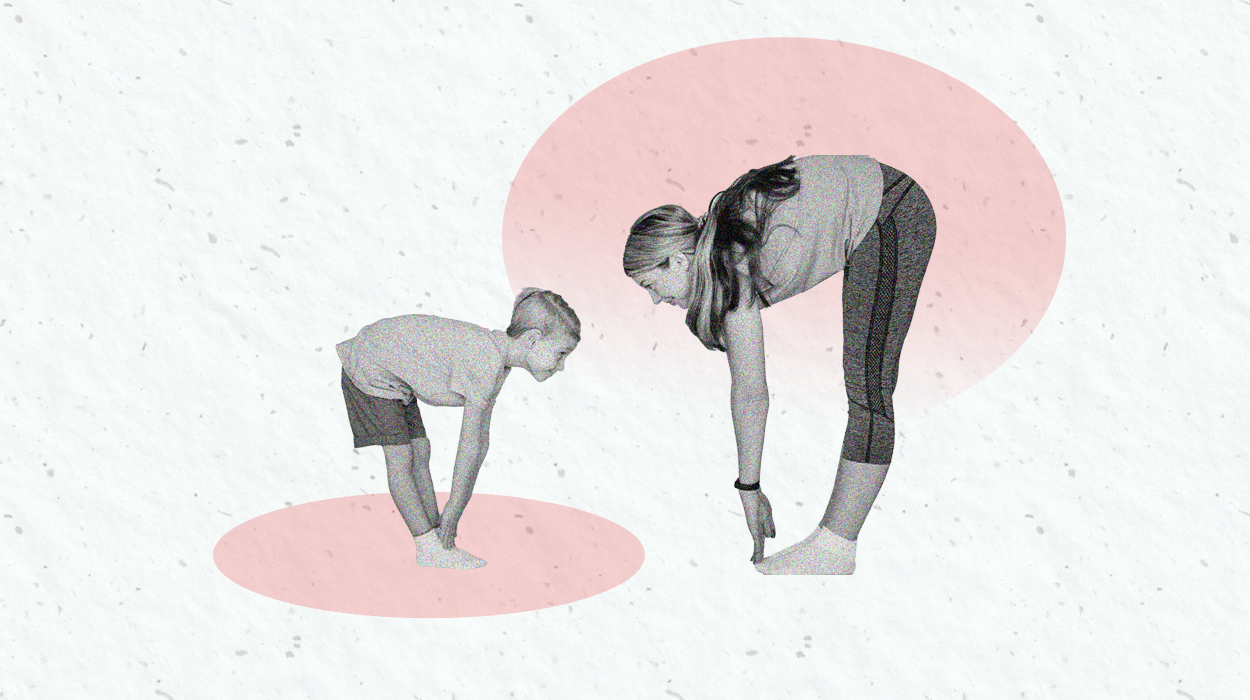 Expert's opinion
Expert's opinion
Expert's opinion
The article is a subjective view on this topic written by writers specializing in medical writing.
It may reflect on a personal journey surrounding struggles with an illness or medical condition, involve product comparisons, diet considerations, or other health-related opinions.
Although the view is entirely that of the writer, it is based on academic experiences and scientific research they have conducted; it is fact-checked by a team of degreed medical experts, and validated by sources attached to the article.
The numbers in parenthesis (1,2,3) will take you to clickable links to related scientific papers.
5 Alternative Treatment For Autism – Do They Really Work? [2024 Updated]

Autism Spectrum Disorder (ASD) remains a mystery in many ways. While genetic and environmental factors have been hypothesized to play a role, we do not exactly understand what causes it. There is also no “cure” for autism because it is simply a neurotype. What we do know is that early diagnosis and intervention can tremendously help with skills development.
Many children with autism receive therapy to address social communication deficits, developmental delays, and behavioral signs associated with ASD. Unfortunately, access to conventional therapies can be difficult for some families due to factors like geographical location and financial constraints.
As a result, many people have turned to complementary[1] and alternative medicine (CAM) treatments. Numerous autism research has touched on the potential benefits of CAM therapies, however, the majority of these treatments still lack scientific evidence to back up their use.
Alternative Treatments For Autism Spectrum Disorders
Despite the lack of solid research and conclusive evidence, alternative treatments[2] continue to grow in popularity. Examples of alternative therapies for autism spectrum disorders include:
- Supplementing nutrients
- Dietary changes
- Massage
- Acupuncture
- Exercise
- Music therapy
- Animal therapy
Most alternative therapies should be approached with caution[3] as they generally lack scientific evidence.
5 Alternative Treatments For Autism Spectrum Disorder – Complementary And Alternative Therapies 2024
Supplements
This can include supplements like melatonin, vitamin B, folic acid, L-carnosine, CBD, and more. Each of these vitamin supplements is aimed at addressing specific concerns. Melatonin,[4] for example, is intended to alleviate some of the insomnia that can come with ASD. It is generally safe and adequate for that purpose.
Other supplements like L-carnosine are also being studied for their neuroprotective, antioxidant, and anti-convulsive effects that could help with ASD symptoms. Unfortunately, there is not enough solid scientific evidence to support the use of this supplement. Iron, B12 or folic acid, omega-3 fatty acids,[5] and other supplements have also been suggested for treating ASD. There is conflicting evidence on the effectiveness of these supplements, but they are generally a low-risk option that might offer some nutritional benefits.
Diet
Individuals with Autism Spectrum Disorder may experience nutrient deficiencies due to certain behaviors associated with the condition. Sensory sensitivities and avoidant and restrictive food intake patterns can lead to nutrient deficiencies. Pica, an eating disorder characterized by the compulsive consumption of non-food items, and irregular meal times, exacerbates this issue.
Diet is increasingly being recognized as playing an important role in health. The diet most often recommended for people with ASD is a gluten-free, casein-free diet (GFCF). Gluten is a compound in many grains, while casein is usually found in dairy products. It is believed that both gluten and casein can trigger an allergic reaction, which may be connected to ASD in some way.
While it has been reported that some people have had their symptoms reduced through elimination diets, a larger and more comprehensive study suggests a gluten-free, casein-free[6] diet was not associated with any improvement.
Dietary interventions may also not be as harmless as previously believed. Long-term adherence to restricted diets like GFCF can lead to deficiencies in essential micronutrients. Elimination diets may impose an economic burden on families, resulting in social isolation and various social and psychological consequences.
Studies have also examined the effects of probiotics on promoting gut health in children with autism. As with diet, there is no definitive evidence that this treatment will be helpful. This intervention may improve their gastrointestinal symptoms, while not directly treating the core symptoms associated with ASD.
Exercise

Exercise is not always easy, but it is necessary for a healthy lifestyle. People with autism, particularly adults, are generally less active[7] than neurotypical people. As a result, obesity and other conditions related to lack of exercise are common in people with Autism Spectrum Disorder.
Exercise is associated with a wide range of benefits. People with ASD may find they get more practice in social communication through exercising with a group or a fitness coach. Motor skills and general coordination also improve. Exercising is also useful for burning off the extra energy that can result from overstimulation.
Engaging in physical activity brings about positive impacts on social skills and behavior in young children and adolescents diagnosed with autism. Martial arts and horseback riding are widely acknowledged for their exceptional benefits, while yoga, dance, and swimming offer more limited advantages.
Massage, Acupuncture, Yoga, etc.
Many individuals find massage, acupuncture, and yoga beneficial. Since individuals with autism often struggle with the mind-body connection, practicing and strengthening this skill can prove to be valuable.
Things like acupuncture, yoga, and meditation can also be great for managing depression and anxiety. Acupuncture has been mainly studied in China with some promising results. Massage[8] is one of the few alternative therapies that have a fair amount of scientific backing. Several randomized controlled trials showed that massage helps calm people, particularly children with autism. Many parents are often encouraged to learn how to give their child a massage, as it can help strengthen the bond with their child.
Music And Animal Therapy

Music therapy[9] involves listening to and potentially learning to play music. This is seen to encourage a feeling of engagement and community and strengthen a relationship with the environment. There is some helpful evidence, though there are few rigorous studies regarding music therapies.
Animal therapy[10] follows a similar logic, though the connection formed is with an animal. That connection is seen as a stepping stone to relationships with their peers. As with music therapy, there is no rigorous evidence that animal therapy is helpful to those with ASD. However, it might do some good, while being unlikely to do much harm. One disadvantage of both of these therapies is that they can be somewhat expensive.
Conventional Treatments For Autism Spectrum Disorders
While alternative therapies can be helpful, they usually are part of a larger treatment plan. Alternative therapies are often called complementary treatments, in that they can complement conventional treatments, making them more effective.
Conventional treatments[11] usually center around these areas:
- Occupational Therapy
- Speech Therapy
- Psychotherapy
- Behavioral therapy
- Pharmacology
These approaches might be supported by medical practitioners, physical therapists, dieticians, developmental educators, social workers, and other specialists.
Occupational Therapy (OT)
Occupational therapists play a crucial role in helping children with autism to engage in day-to-day activities, including self-care, leisure, and productivity. You will find them in hospitals, outpatient clinics, schools, and community centers. OTs address challenges in areas such as visual-motor, gross, and fine motor skills, emotional regulation, and sensory processing.
By focusing on these areas, individuals can actively participate and thrive within their home, school, work, and community environments.
Speech Therapy (ST)
Speech therapy typically focuses on improving communication skills, including language development, social communication, problem-solving, and reasoning skills. They can help you with navigating different types of Augmentative and Alternative Communication (AAC). They commonly collaborate with occupational therapists as integral members of the treatment team.
Psychotherapy
The role of psychologists and psychiatrists in the treatment of individuals with autism focuses on psychological and emotional well-being. They help to assess emotion regulation, anxiety, depression, and other mental health-related challenges and develop strategies to cope with them. They can also provide guidance on behavioral management techniques for different behavioral symptoms.
Family Therapy Family therapy is often used to work on communication between family members, understanding the needs of the individual with autism, and adjusting to the changes that occur with having a family member on the autism spectrum.
Behavioral Therapy
Behavioral therapy[12] focuses on encouraging preferred behaviors while discouraging repetitive behaviors that are self-harming and considered aggressive. They are mainly recommended for children with a pervasive developmental disorder diagnosis. Like other therapies, behavioral therapists also work on life skills, social skills, and methods of coping with ASD.
Pharmacology
There are only two medications[13] that are approved for treating symptoms of autism. The FDA has granted approval for the prescription of certain antipsychotic medications, namely risperidone and aripiprazole. Both medications are approved for use in addressing irritability in children with ASD.
Conclusion
Autism Spectrum Disorder remains a poorly understood condition. This lack of understanding means that it’s difficult to find truly effective alternative therapy that is backed by scientific evidence. However, additional scientific studies are underway and our understanding of Autism Spectrum Disorder continues to grow.
+ 13 sources
Health Canal avoids using tertiary references. We have strict sourcing guidelines and rely on peer-reviewed studies, academic researches from medical associations and institutions. To ensure the accuracy of articles in Health Canal, you can read more about the editorial process here
- DeFilippis M (2018). The Use of Complementary Alternative Medicine in Children and Adolescents with Autism Spectrum Disorder. Psychopharmacology bulletin, [online] 48(1). Available at: https://pubmed.ncbi.nlm.nih.gov/29382959/ [Accessed 16 Aug. 2023].
- Levy, S.E. and Hyman, S. (2008). Complementary and Alternative Medicine Treatments for Children with Autism Spectrum Disorders. Child and Adolescent Psychiatric Clinics of North America, [online] 17(4), pp.803–820. doi:https://doi.org/10.1016/j.chc.2008.06.004.
- Niggemann, B. and Christoph Grüber (2003). Side-effects of complementary and alternative medicine. Allergy, [online] 58(8), pp.707–716. doi:https://doi.org/10.1034/j.1398-9995.2003.00219.x.
- Hellen Araujo Nogueira, Tianeze, C., Cristina, D. and Pereira, M. (2023). Melatonin for sleep disorders in people with autism: Systematic review and meta-analysis. Progress in Neuro-psychopharmacology & Biological Psychiatry, [online] 123, pp.110695–110695. doi:https://doi.org/10.1016/j.pnpbp.2022.110695.
- Bent, S., Bertoglio, K. and Hendren, R.L. (2009). Omega-3 Fatty Acids for Autistic Spectrum Disorder: A Systematic Review. Journal of Autism and Developmental Disorders, [online] 39(8), pp.1145–1154. doi:https://doi.org/10.1007/s10803-009-0724-5.
- Busra Baspinar and Hülya Yardimci (2020). Gluten-Free Casein-Free Diet for Autism Spectrum Disorders: Can It Be Effective in Solving Behavioural and Gastrointestinal Problems? The Eurasian Journal of Medicine, [online] 52(3), pp.292–297. doi:https://doi.org/10.5152/eurasianjmed.2020.19230.
- Jachyra, P., Renwick, R., Gladstone, B., Anagnostou, E. and Gibson, B.E. (2020). Physical activity participation among adolescents with autism spectrum disorder. Autism, [online] 25(3), pp.613–626. doi:https://doi.org/10.1177/1362361320949344.
- Walaszek, R., Maśnik, N., Marszałek, A., Walaszek, K. and Marcin Burdacki (2017). Massage efficacy in the treatment of autistic children – a literature review. International journal of developmental disabilities, [online] 64(4-5), pp.225–229. doi:https://doi.org/10.1080/20473869.2017.1305139.
- Mayer-Benarous, H., Benarous, X., François Vonthron and Cohen, D. (2021). Music Therapy for Children With Autistic Spectrum Disorder and/or Other Neurodevelopmental Disorders: A Systematic Review. Frontiers in Psychiatry, [online] 12. doi:https://doi.org/10.3389/fpsyt.2021.643234.
- Ang, C.-S. and Freya Anne MacDougall (2022). An Evaluation of Animal-Assisted Therapy for Autism Spectrum Disorders: Therapist and Parent Perspectives. Psychological Studies, [online] 67(1), pp.72–81. doi:https://doi.org/10.1007/s12646-022-00647-w.
- CDC (2022). Treatment and Intervention Services for Autism Spectrum Disorder. [online] Centers for Disease Control and Prevention. Available at: https://www.cdc.gov/ncbddd/autism/treatment.html [Accessed 16 Aug. 2023].
- https://www.nichd.nih.gov/. (2021). Behavioral Management Therapy for Autism. [online] Available at: https://www.nichd.nih.gov/health/topics/autism/conditioninfo/treatments/behavioral-management [Accessed 16 Aug. 2023].
- https://www.nichd.nih.gov/. (2021). Medication Treatment for Autism. [online] Available at: https://www.nichd.nih.gov/health/topics/autism/conditioninfo/treatments/medication-treatment [Accessed 16 Aug. 2023].



